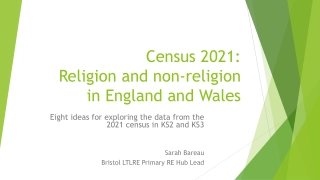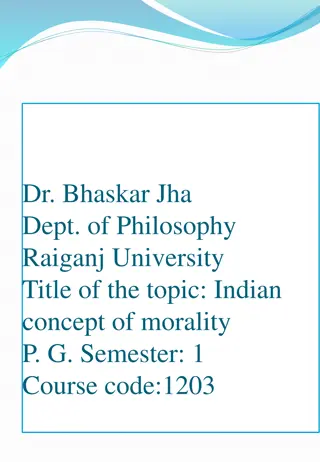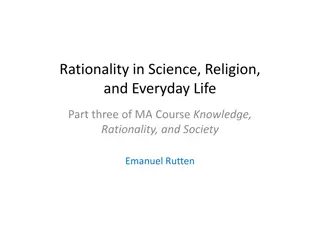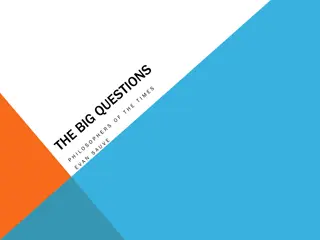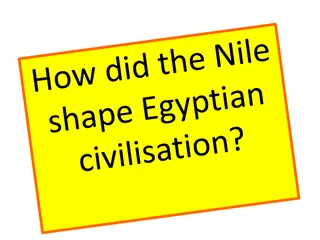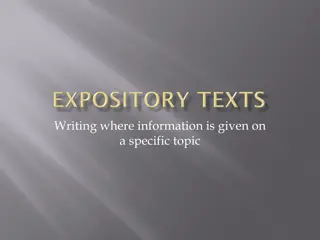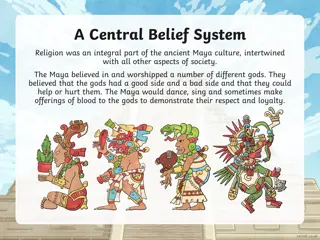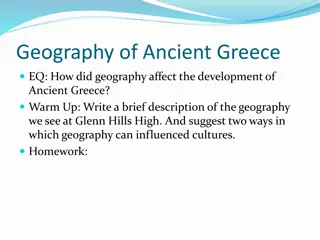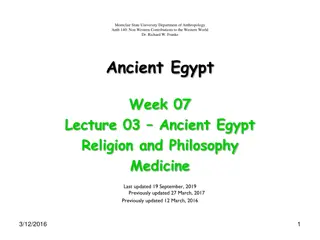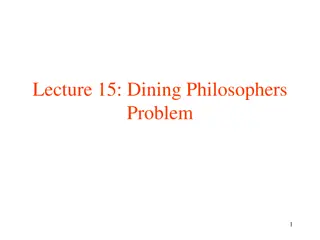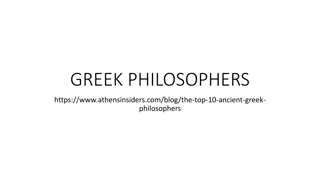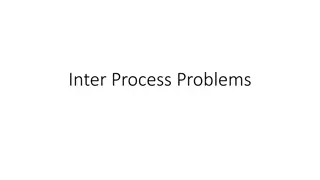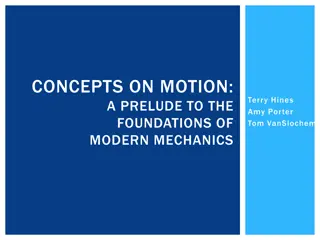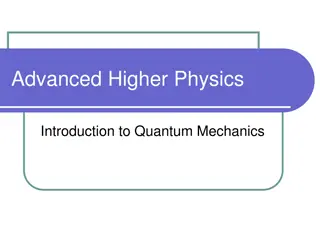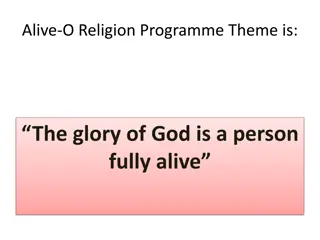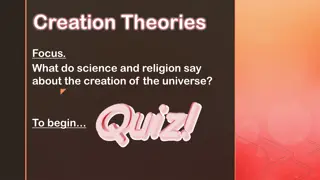Contrasting Science and Religion Through Ancient Philosophers
The content explores the differences between science and religion using examples from ancient philosophers like Amos, Herodotus, and Epicurus. It highlights how science relies on testable data and unbiased processes, while religion involves divine forces and unverifiable beliefs. The text emphasizes the importance of evidence in supporting arguments and draws parallels between philosophical reflections on the physical world and the principles of scientific inquiry.
Uploaded on Sep 13, 2024 | 0 Views
Download Presentation

Please find below an Image/Link to download the presentation.
The content on the website is provided AS IS for your information and personal use only. It may not be sold, licensed, or shared on other websites without obtaining consent from the author. Download presentation by click this link. If you encounter any issues during the download, it is possible that the publisher has removed the file from their server.
E N D
Presentation Transcript
SOMETHINGS ARE FAIRLY STRAIGHTFOWARD Use Amos and Herodotus as evidence to show differences as described below Divine forces are not active in nature to reward or punish human behavior Ideas are supported by testable and verifiable data or observation Science is a (bias free) process or method used to investigate nature Science seeks consistency between observations and models. All of these clearly define a difference in operating principles between science and religion. Thucydides is a good example of the bias free method.
PROCLAMATIONS Epicurus cautioned the public against blindly following the ideas of the physical philosophers, which in turn prompted reflection on different explanations of the physical world. It does not matter that Epicurus suggests religion over scientific thinking because at the time both could not be verified. The fact that Epicurus suggests both denominations shows that he himself has considered both alternatives, and therefore used all authorities to define phenomenon, the ultimate goal of the scientific process. The above may or may not be true but evidence (what Epicurus says) is needed to support these statements Read your paper out loud to yourself.
Better Care in Defining Science There is actually little experimentation going on at this time Aristotle always asserts a final cause he does not deduce a cause from the effects Scientific thought is based on a few key concepts. There is no sort of divine interventions by the gods or heavens to punish or reward humans, but instead the physical world is viewed as rational, logical, and explainable through proper observation and analysis This is likely what Bothun/Nicols say but this is an example needing evidence to support this Observations are Data
Good science however, presents a set of observations made regarding natural patterns, occurrences, and experiments without claiming to know the reasons behind said observations Now back this up with thucydides or galen Back up your arguments
Use quotes in right context; avoid being wordy empiricaldeterminations of knowledge. = experiments Human beings began to do philosophy, even as they do now, because of wonder, at first because they wondered about the strange things right in front of them, and then later, advancing little by little, because they came to find greater things puzzling, This quote was used on the context that science proceeds by rational thought when in fact, this quote seems to be more that science is a discovery process


